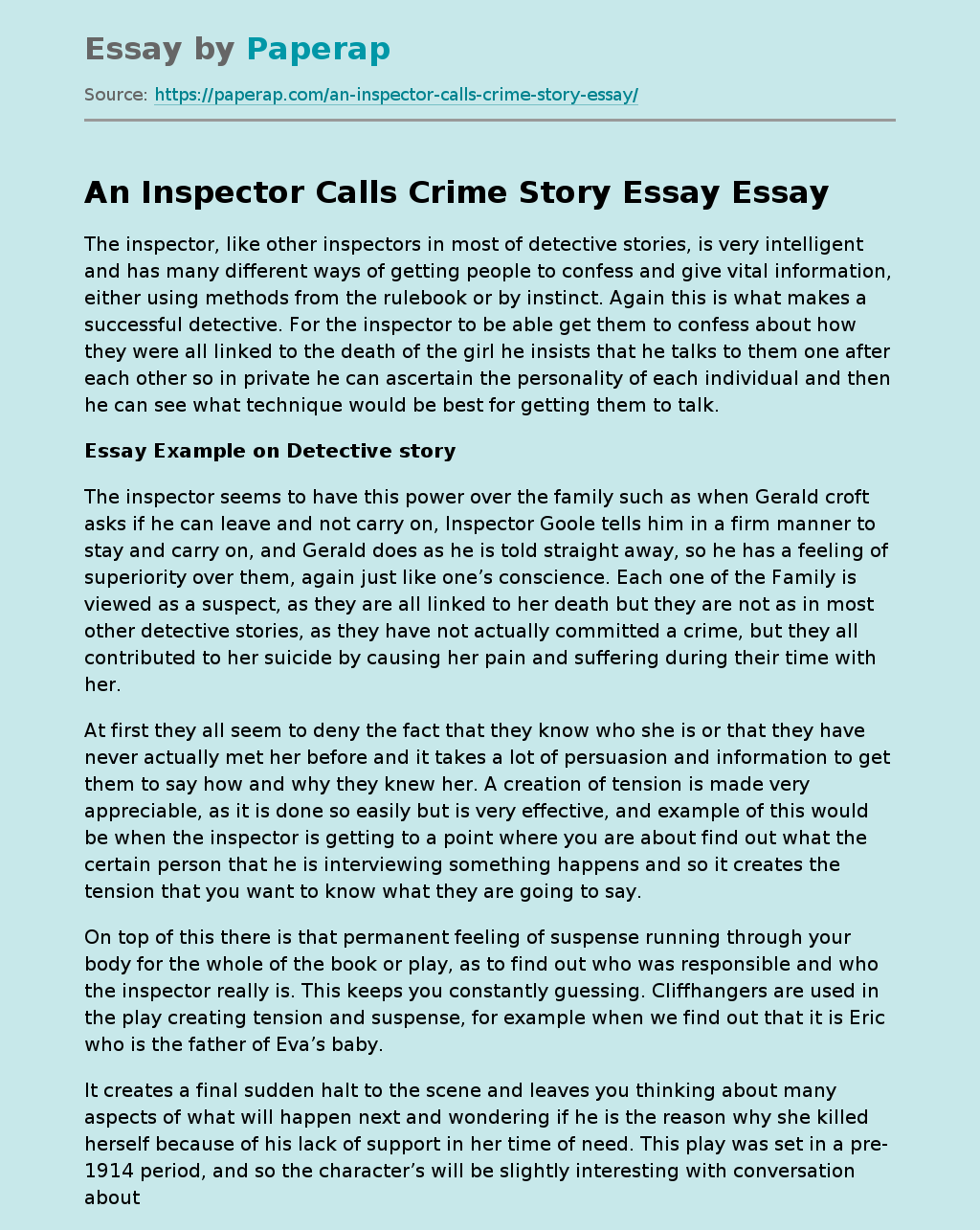An Inspector Calls Crime Story Essay
The inspector, like other inspectors in most of detective stories, is very intelligent and has many different ways of getting people to confess and give vital information, either using methods from the rulebook or by instinct. Again this is what makes a successful detective. For the inspector to be able get them to confess about how they were all linked to the death of the girl he insists that he talks to them one after each other so in private he can ascertain the personality of each individual and then he can see what technique would be best for getting them to talk.
Essay Example on Detective story
The inspector seems to have this power over the family such as when Gerald croft asks if he can leave and not carry on, Inspector Goole tells him in a firm manner to stay and carry on, and Gerald does as he is told straight away, so he has a feeling of superiority over them, again just like one’s conscience.
Each one of the Family is viewed as a suspect, as they are all linked to her death but they are not as in most other detective stories, as they have not actually committed a crime, but they all contributed to her suicide by causing her pain and suffering during their time with her.
At first they all seem to deny the fact that they know who she is or that they have never actually met her before and it takes a lot of persuasion and information to get them to say how and why they knew her.
A creation of tension is made very appreciable, as it is done so easily but is very effective, and example of this would be when the inspector is getting to a point where you are about find out what the certain person that he is interviewing something happens and so it creates the tension that you want to know what they are going to say.
On top of this there is that permanent feeling of suspense running through your body for the whole of the book or play, as to find out who was responsible and who the inspector really is. This keeps you constantly guessing. Cliffhangers are used in the play creating tension and suspense, for example when we find out that it is Eric who is the father of Eva’s baby.
It creates a final sudden halt to the scene and leaves you thinking about many aspects of what will happen next and wondering if he is the reason why she killed herself because of his lack of support in her time of need. This play was set in a pre-1914 period, and so the character’s will be slightly interesting with conversation about if they believe a war will start and the Father is always looking at the prospects of the future and it seems all he cares about is making profit from his company.
We then find out about Eric’s life and the fact that the other family members had lives that no one else suspected of. This adds more suspense, making you continually guess about what happened. As a final conclusion, I think that it is the tension and suspense effect that Priestly uses to make contrasts, to keep you guessing throughout the story, and yes, this book does fit into the category of a detective story.
An Inspector Calls Crime Story Essay. (2019, Nov 27). Retrieved from https://paperap.com/an-inspector-calls-crime-story-essay/

